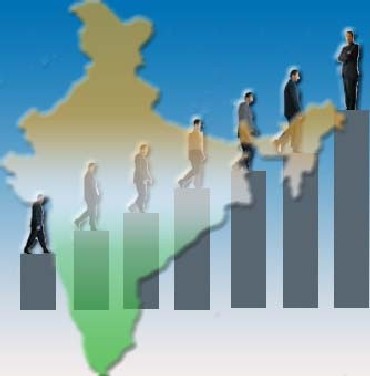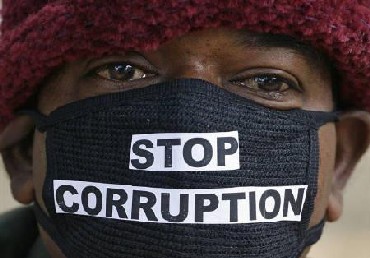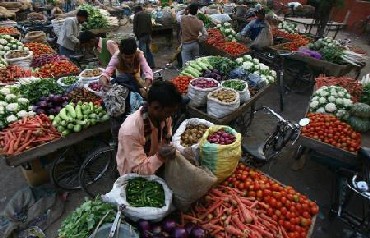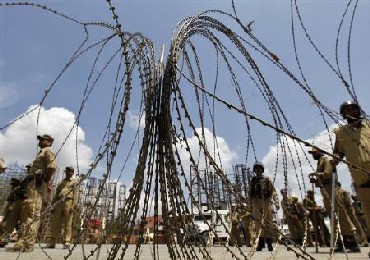 | « Back to article | Print this article |
Fighting price rise is top priority, says President
Combating inflation and sustaining growth momentum may be the top priority, but the government on Monday said it would strive to push economic reforms to encourage foreign and private sector investments in the economy.
"The Indian economy continues to be on a trajectory of high growth despite an adverse global environment... However, there is no room for complacency," President Pratibha Patil said in her address to Parliament that marked beginning of the Budget session.
The top priority of the government, she said, would include combating high prices especially of food items and sustaining momentum of economic growth.
To achieve this twin objective, she said "we have strived to make the domestic environment more conducive to investment, encouraging public as well as private investment, and domestic as well as foreign investment, particularly FDI.
Click NEXT to read more...
Fighting price rise is top priority, says President
"We have to maintain the momentum for reforms on a wide front," Patil said. Referring to the high inflation during the past one year, the President said "my government is deeply concerned over the adverse impact of inflation on the aam aadmi (common man) and the threat it poses to the growth momentum."
While the food inflation had touched 18.32 per cent in December, 2010 before moderating to over 11 per cent this month, the overall inflation still hovers above eight per cent as against the comfort level of 5-6 per cent.
The economic growth, however, is expected to be 8.6 per cent for the current fiscal, up from eight per cent a year ago.
Declaring that the government would spare no effort in bringing back to India "what belongs to it and to bring the guilty to book, the President said the steps taken so far have led to additional collection of taxes of Rs 34,601 crore (Rs 346.01 billion) and detection of additional income of Rs 48,784 crore (Rs 487.84 billion)."
Click NEXT to read more...
Fighting price rise is top priority, says President
Detailing the steps taken by the government, she said India was also working closely with the international community especially through the G-20, to expedite the process of identification and recovery of such money.
She said India is now a member of the Financial Action Task Force in recognition of its anti-money laundering and anti-tax evasion measures and has also gained membership of the Eurasian Group and the Task Force on Financial Integrity and Economic Development.
Turning to the issue of corruption in the wake of rash of scams that have surfaced recently, she said, "Our citizens deserve good governance. It is their entitlement and our obligation".
"My government stands committed to improving the quality of governance and enhancing transparency, probity and integrity in public life," Patil said.
Click NEXT to read more...
Fighting price rise is top priority, says President
She said that a Group of Ministers was considering all measures including legislative and administrative to tackle corruption and improve transparency.
"The group will consider issues relating to the formulation of a public procurement policy and enunciation of public procurement standards and review and abolition of discretionary powers enjoyed by ministers", she said.
Besides, it would also seek introduction of an open and competitive system of exploiting natural resources, fast tracking of cases against public servants charged with corruption and amendments to relevant laws to facilitate quicker action against public servants, she said.
The Group will also consider issues relating to the state funding of elections. The report of the GoM is expected soon, the President said.
Click NEXT to read more...
Fighting price rise is top priority, says President
A Bill to give protection to whistle blowers has been introduced in Parliament, she said, adding the government has also decided to ratify the United Nations Convention against Corruption.
On the issue of electoral reforms, she hoped that the process of consultations would lead to a consensus on an "acceptable" agenda of reforms.
She said the government attached high priority to improving the delivery of justice and reducing delays in the disposal of cases. The details of the National Mission for Delivery of Justice and Legal Reforms are expected to be finalised soon.
The Judicial Standards and Accountability Bill, already introduced in Parliament, is intended to enhance the accountability of the judiciary, thereby improving its image and efficiency, the President said.
Click NEXT to read more...
Fighting price rise is top priority, says President
Listing government's foremost priorities in 2011-12, the President said it would be to combat inflation and in particular to protect the common man from the impact of rising food prices.
The priorities include addressing frontally the concern regarding the lack of probity and integrity in public life, sustaining the economic growth momentum, maintaining an uncompromising vigil on the internal and external security fronts, Patil said.
Besides to pursue a foreign policy, which would ensure that "our voice is heard and our interests are protected" in global fora, she said.
She expressed deep concern over the adverse impact of inflation on the 'aam aadmi' and the threat it poses to the growth momentum.
Click NEXT to read more...
Fighting price rise is top priority, says President
Taking a look at the year gone by, the President said, "We have gone through a difficult year for our country. Inflation has been a problem in the past year. Certain parts of the country have suffered from unacceptably high levels of violence especially areas affected by Left-wing extremism and the Kashmir Valley".
She said the maintenance of law and order was the primary responsibility of the state governments with the support of the Central government.
"Terrorism, fundamentalism, ethnic violence and Left-wing extremism continue to pose major challenges", she said, adding the Centre has initiated a major revamp in the security apparatus following the terrorist attack in Mumbai.
Click NEXT to read more...
Fighting price rise is top priority, says President
Except for two incidents of terror in Pune and Varanasi, the internal security scenario has largely been under control, Patil said.
The situation in J&K has improved, she said, noting that a number of proactive measures have been taken by the Central and state governments.
All party delegation visited the state and the interlocutors have also been engaged fruitfully in their endeavours, she said.
Intensive engagement with various groups in the North East has largely reduced violence in those states, she said.









